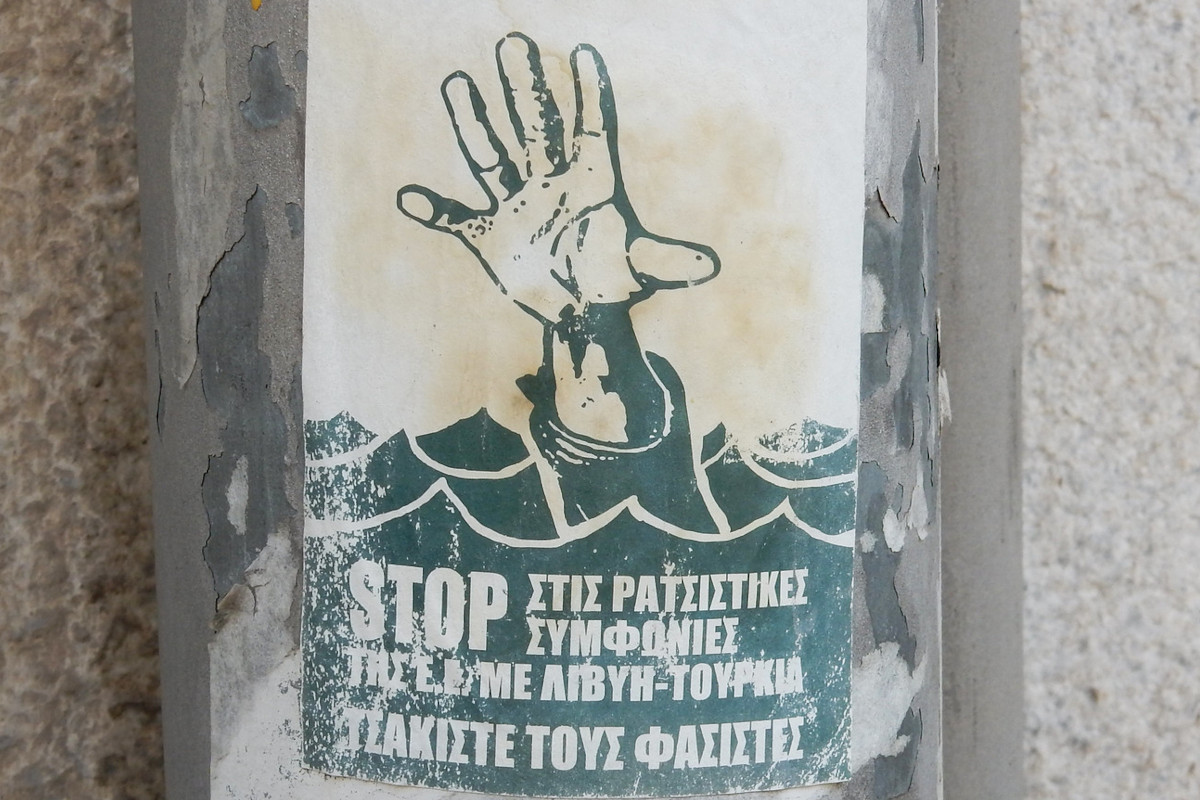France: How the “war on drugs” is turbo-charging surveillance powers
Topic
Country/Region
16 April 2025
A French law is set to unleash invasive new police surveillance powers. Fuelled by absurd rhetoric, the government is proposing what has been dubbed “the worst surveillance law in the EU”. Experts warn that it will fail to achieve its aims. However, the broad scope of the law means the powers can be used against migrants, their supporters, and to crack down on dissent. As official reports have made clear, dealing with drug use and trafficking requires long-term, low-tech policies – not high-tech police surveillance powers.
Support our work: become a Friend of Statewatch from as little as £1/€1 per month.
Summary
- The French government is stepping up its war on drugs, combining absurd rhetoric (with smoking a joint compared to shooting a child in the head) and new legislation
- This repressive approach is similar to that favoured in many other countries around the world, where it has also failed to reduce drug trafficking or use
- The French government’s proposal includes some particularly invasive surveillance measures, including:
- encryption backdoors (now dropped);
- remote activation of phones by the police; and
- mass surveillance of internet and telecoms traffic
- The broad scope of the law means these powers can also be used against irregular migrants, those providing them with aid or support, and political dissidents
- There may soon be similar measures proposed at European level, as part of the EU’s new internal security strategy
A sensationalist origin story
In 2014, the French government warned that the country was at a “tipping point” and called for the fight against drug trafficking to become “a national cause”. The government’s latest plan to address the problem has two components. First, try to shock the public. Second, pass new legislation on ‘narcotraffic’.
This attempt to shock people has led to a stream of ridiculous statements from officials. If there is a competition amongst them, then Bruno Retailleau, the interior minister, is the clear winner. He has warned that smoking a joint is akin to “two bullets in the head of a five-year-old kid; this is a youth who has been stabbed 50 times with a knife and burned alive.”
Over the years, there has been an undeniable rise in violence. A book published last year looked at the phenomenon of young “shooters” – children and young adults who become involved in gun violence. The authors argued that young shooters were similar to sicarios, Mexico’s notorious killers for hire. The parallel between France and the world’s most violent country for drug trafficking quickly spread. Retailleau, the interior minister (yes, him again) claimed there had been a “Mexicanisation” of France.
The comparison is absurd. Mexico holds the record for disappearances and deaths related to the war on drugs. Amnesty International, citing Mexican government data, says that some 30 people disappear every day in the country. This equates to more than one person every hour, and a total of almost 11,000 people annually. In France, there were 110 deaths linked to drug trafficking in 2024, according to interior ministry data.
Repression: a governmental favourite
France is just one of many countries taking an ever-more repressive approach to drugs. Ann Fordham is the director of the International Drug Policy Consortium, a global network of over 190 NGOs that promotes person-centred, rights-affirming drug policies at the national, regional and international levels. She told Statewatch:
“The reality that we see across the globe is that repressive measures have comprehensively failed to suppress the drug trade and have instead led to the drastic erosion of fundamental rights. This move in France is unfortunately no exception.”
These quick fixes get their proponents headlines in the press, but they provide few positive long-term results. The French Court of Auditors recently warned that the entire system of youth assistance is screaming for survival. It requires long-term human and financial investment. Instead, resources are directed elsewhere.
A government report on limiting children’s involvement in drug trafficking proposed a number of potential solutions to the problem. They include proposals for better follow-up from local services in providing care, and improved social services for the youth and their families. They do not include proposals to give the police military-grade surveillance powers. That, however, is precisely what is happening.
Technological experimentation out of control
Successive French governments have introduced new police surveillance powers. Earlier this year, the current administration decided to continue with the controversial experiment in automated, algorithmic video surveillance that was introduced for the Olympic Games. Now, it will last until at least 2027. There has been no public impact assessment of its utility.
Under discussion now is a proposal described as “the worst surveillance law in the EU” by Tuta, a company that produces encrypted software. Statewatch, alongside European Digital Rights and 20 other civil society organisations, warned that the proposal came with serious risks for the right to privacy and the rule of law.
Encryption backdoors
One of the measures proposed would force companies to create ‘backdoors’ so that law enforcement agencies can access encrypted communications. This “rips a hole in the hull of private communications,” said Meredith Whittaker, president of the Signal Foundation. (Signal is an encrypted messaging app for secure, private communication, recently made famous by the US government’s war cabinet.)
As the letter signed by Statewatch made clear, there is “wide scientific consensus that giving exceptional access to end-to-end encrypted data inevitably creates vulnerabilities that criminals and repressive regimes can exploit… The security of everybody is therefore on the line.” This particular proposal was removed from the bill following negotiations in the French parliament.
Phones for police spying
One proposal that remains in the bill would allow the police to remotely activate a person’s mobile phone or any connected device in their surroundings. This measure was already proposed in 2023 and was scrapped by the constitutional council because of its invasiveness. This included the fact that deployment could not be limited to people under investigation: the eavesdropping would have extended to anyone nearby, a disproportionate breach of privacy.
There has been strong pushback from the judiciary, as well as from the French ombudsman. They have argued that the proposal could be used to undermine lawyer-client confidentiality. The European Court of Human Rights has recognised that client-to-lawyer confidentiality is an essential component of the rule of law.
Black boxes
Last but not least is the proposal to extend the use of “black boxes.” A black box is a device installed on a telecoms network that “sucks up all the telephone and Internet metadata of its users and filters them through an algorithm.” They were first introduced in 2015 and their use limited exclusively to anti-terrorism investigations. The technology is extremely invasive, and even the authors of a report that led to the legislative proposal, senator Jérôme Durain and Étienne Blanc consider their use akin to mass surveillance. However, the only report on their use is classified, and only eight parliamentarians have accessed it.
Invasive, racist and repressive
There has been no assessment of the potential utility of these new techno-powers for tackling drug trafficking. Contrary to what the French government says, Ann Fordham argues:
This proposed legislation is extremely concerning as it undermines privacy, digital security, and civil liberties under the guise of drug control. Expanding surveillance measures in this problematic way will have little impact on a robust and resilient illegal drug market.
In fact, the effects may well fall elsewhere: on migrants, and on political dissent. As highlighted by La Quadrature du Net, the scope of the law extends beyond drug trafficking.
Against migrants
Under the proposal, the new powers could not only be deployed in relation to drug trafficking. They could also be used for preventing irregular entry, stay and transit in or through the French territory.
The French state has heavily criminalised migrants and people providing humanitarian assistance. In 2018, a young man was convicted of defamation for posting a picture online showing police violence against migrants.
The barely hidden racist objective of the law became clear during the first reading of the proposal. A right-wing parliamentarian added a requirement for near-mandatory entry bans for non-citizens who receive sentences of five years or more for drug trafficking.
Against dissent
In keeping with the aim of inhibiting drug trafficking, the law also targets organised crime. However, the definition of organised crime has already been extended to criminalise activist groups – for example, the Gilets Jaunes and environmental activists.
Spillover effect
The French parliament adopted the text on 1 April and is set to adopt the law after discussion in a restricted commission with members of the parliament and the senate. We can only hope, as Ann Fordham puts it, that “French lawmakers will reject this bill and instead pursue evidence-based drug policies that respect human rights.”
Some French parliamentarians have already started planning for the worst, by filing complaints to the Constitutional Council. The body would then be obliged to assess the legality of some of the most invasive measures.
This legislative proposal could also set the tone for changes to the law across Europe, as part of a broader attempt to equip police with new technologies. Investigate Europe revealed earlier this year that the French government spearheaded EU governments’ campaign to dilute safeguards around policing and immigration powers in the Artificial Intelligence Act.
The idea that the police need to catch up with criminal innovation is a key pitch for law enforcement agencies. The director of Europol has recently been asking for more resources to “stay ahead” of criminal groups. This is one aim of the proposal to reinforce Europol’s anti-migrant smuggling powers. There has been no formal assessment of its potential impact on human rights, and its scope is not limited to smuggling.
The EU’s new internal security strategy (called “ProtectEU”) mirrors the French initiative at the European level. It proposes reducing or removing restrictions on the mass retention of telecoms data, and a technological “roadmap” on encryption. This is likely to result in proposals for some sort of ‘backdoor’, whatever form it comes in.
Author: Romain Lanneau
Our work is only possible with your support.
Become a Friend of Statewatch from as little as £1/€1 per month.
Spotted an error? If you've spotted a problem with this page, just click once to let us know.


